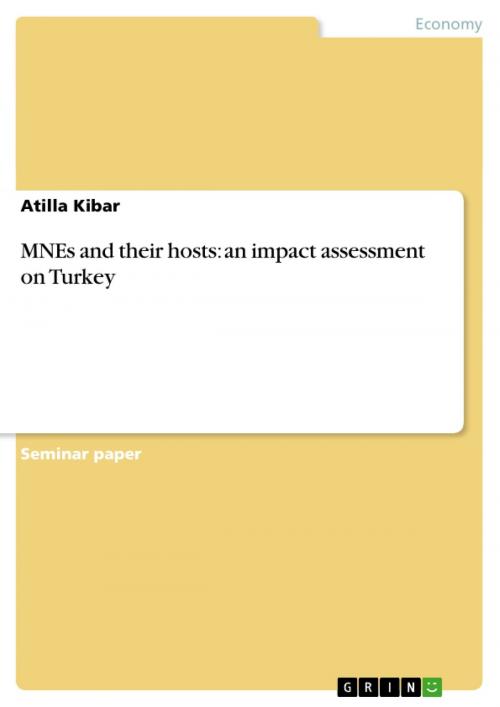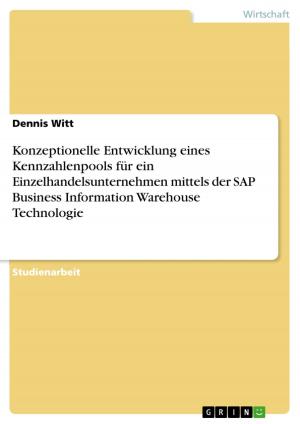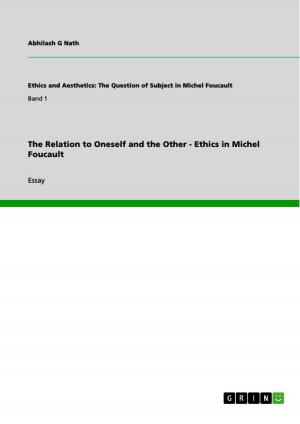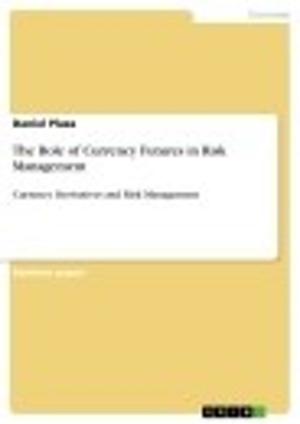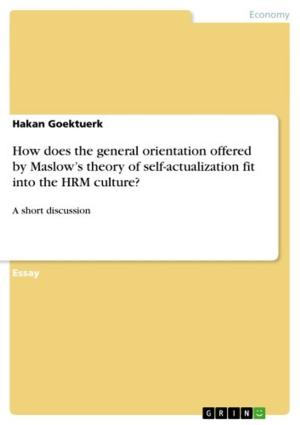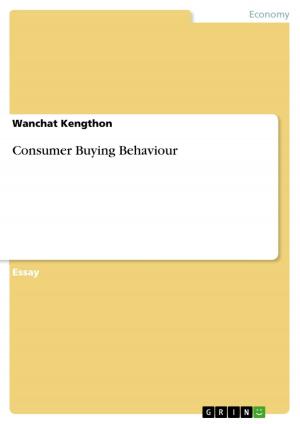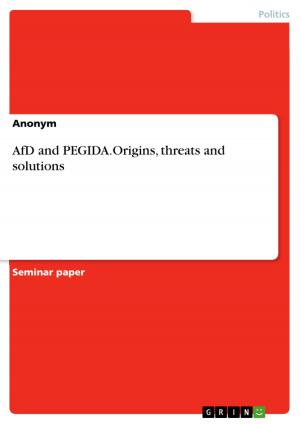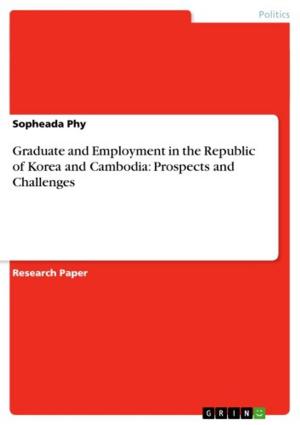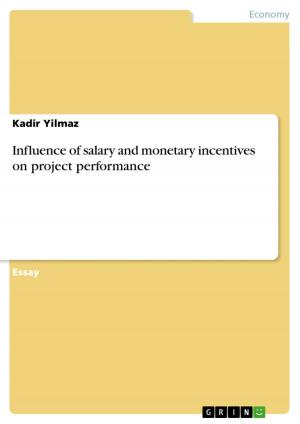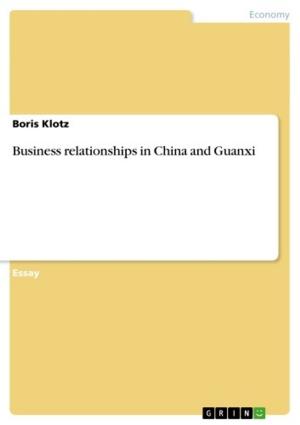MNEs and their hosts: an impact assessment on Turkey
Business & Finance, Finance & Investing, Finance| Author: | Atilla Kibar | ISBN: | 9783638052221 |
| Publisher: | GRIN Publishing | Publication: | May 23, 2008 |
| Imprint: | GRIN Publishing | Language: | English |
| Author: | Atilla Kibar |
| ISBN: | 9783638052221 |
| Publisher: | GRIN Publishing |
| Publication: | May 23, 2008 |
| Imprint: | GRIN Publishing |
| Language: | English |
Seminar paper from the year 2007 in the subject Economics - Finance, grade: 76 / A (Excellent), Leeds Metropolitan University, course: Multinational Enterprises, 21 entries in the bibliography, language: English, abstract: Foreign Direct Investment (FDI) has become the most important determinant in the globalization process and has been increasingly seen as an important stimulus to the industrial growth and development for developing countries (Baykal, 2003). Especially TNCs operating through FDI abroad may affect a countries balance of payments, growth, employment objectives, technological transfer, and sovereignty. Furthermore FDI shows according to several studies that it contributes to international trade, helps to create a more competitive business environment, generates spillover effects, and enhances enterprise development. Nevertheless, under different conditions, there might be not only positive but also negative effects of FDI for the host country, for instance caused through poor performances by TNCs (Daniels & Radebaugh, 2006). The aim of this report is to provide a detailed overview of Turkey as a host country of FDI. For this purpose, past developments, obstacles, recent trends, and structures of FDI in Turkey will be discussed in the first section. The second part reveals a detailed analysis both in theoretical and empirical terms of the costs and benefits of FDI in Turkey. The final section examines policy implications based on the research in the previous chapters and also presents a concluding statement. The selected articles as well as the appendices should support and confirm the statements given in this work. Additionally, it should assist the reader to get a clearer picture about the current situation of FDI in Turkey.
Seminar paper from the year 2007 in the subject Economics - Finance, grade: 76 / A (Excellent), Leeds Metropolitan University, course: Multinational Enterprises, 21 entries in the bibliography, language: English, abstract: Foreign Direct Investment (FDI) has become the most important determinant in the globalization process and has been increasingly seen as an important stimulus to the industrial growth and development for developing countries (Baykal, 2003). Especially TNCs operating through FDI abroad may affect a countries balance of payments, growth, employment objectives, technological transfer, and sovereignty. Furthermore FDI shows according to several studies that it contributes to international trade, helps to create a more competitive business environment, generates spillover effects, and enhances enterprise development. Nevertheless, under different conditions, there might be not only positive but also negative effects of FDI for the host country, for instance caused through poor performances by TNCs (Daniels & Radebaugh, 2006). The aim of this report is to provide a detailed overview of Turkey as a host country of FDI. For this purpose, past developments, obstacles, recent trends, and structures of FDI in Turkey will be discussed in the first section. The second part reveals a detailed analysis both in theoretical and empirical terms of the costs and benefits of FDI in Turkey. The final section examines policy implications based on the research in the previous chapters and also presents a concluding statement. The selected articles as well as the appendices should support and confirm the statements given in this work. Additionally, it should assist the reader to get a clearer picture about the current situation of FDI in Turkey.
